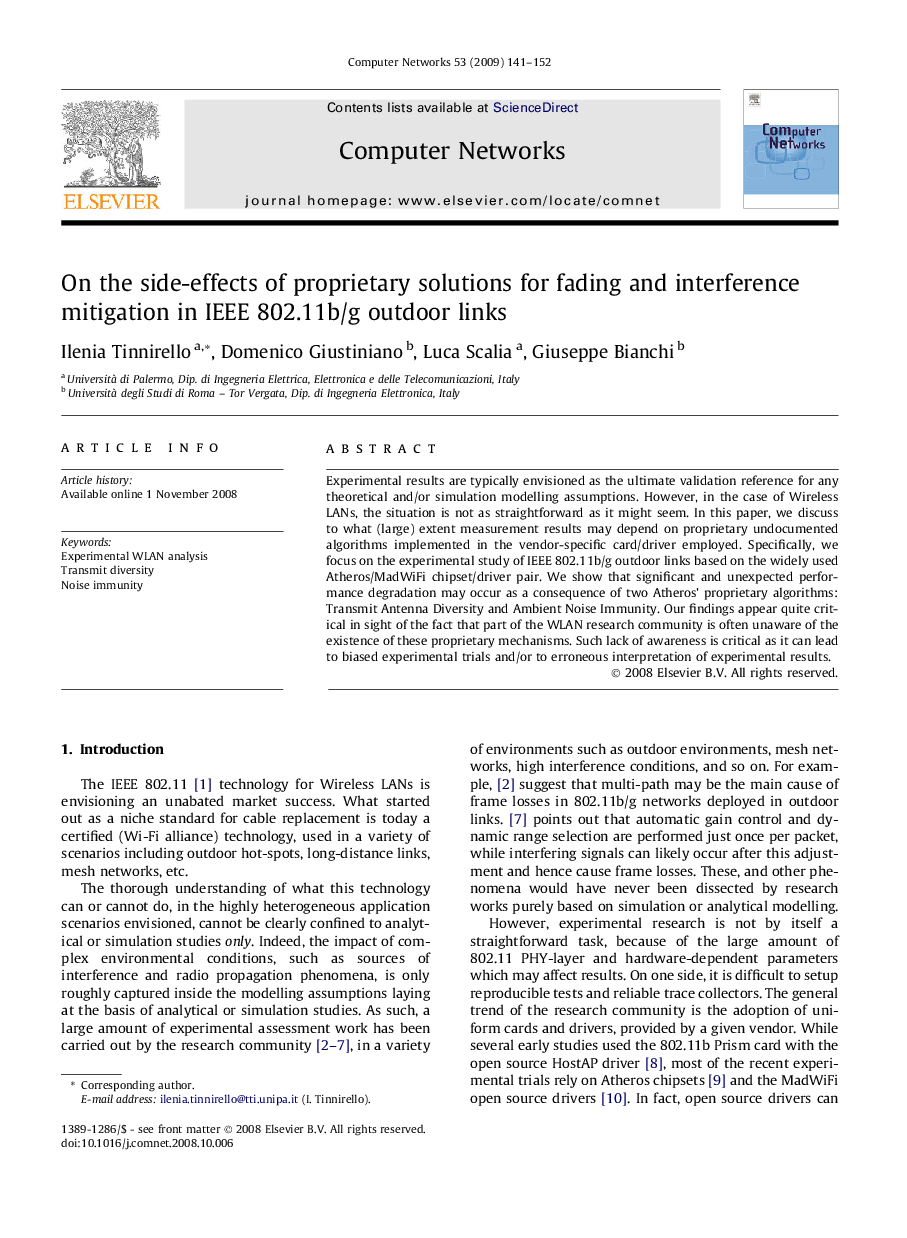| Article ID | Journal | Published Year | Pages | File Type |
|---|---|---|---|---|
| 453171 | Computer Networks | 2009 | 12 Pages |
Experimental results are typically envisioned as the ultimate validation reference for any theoretical and/or simulation modelling assumptions. However, in the case of Wireless LANs, the situation is not as straightforward as it might seem. In this paper, we discuss to what (large) extent measurement results may depend on proprietary undocumented algorithms implemented in the vendor-specific card/driver employed. Specifically, we focus on the experimental study of IEEE 802.11b/g outdoor links based on the widely used Atheros/MadWiFi chipset/driver pair. We show that significant and unexpected performance degradation may occur as a consequence of two Atheros’ proprietary algorithms: Transmit Antenna Diversity and Ambient Noise Immunity. Our findings appear quite critical in sight of the fact that part of the WLAN research community is often unaware of the existence of these proprietary mechanisms. Such lack of awareness is critical as it can lead to biased experimental trials and/or to erroneous interpretation of experimental results.
